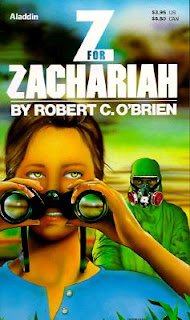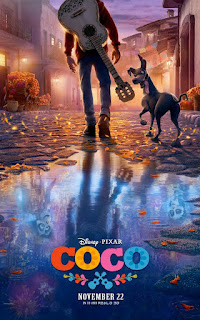Magical Realism and Fantasy
Current Reads: Midnight's Children by Salman Rushdie (for class)
After the King edited by Martin H. Greenberg
Walking with Frodo by Sarah Arthur
Current Writing Projects: SOMEDAY, various short stories
Once again, my classes are inspiring me to put thoughts down on the page. Magical realism - what is it? What makes it different from fantasy? How do you know if something is or isn't magical realism?
Furthermore, how does one write magical realism?
These are some of the questions I have been mulling over this semester, both because of class and because of my own curiosity. Before this semester, I held the opinion that magical realism was just another way of saying fantasy, only written either a) in another language (as Terry Pratchett claims) or b) in a fashion atypical of the fantasy genre. I still hold this opinion somewhat, but I have refined it and made it less reactionary.
Here is how I have come to define magical realism:
Magical realism: (n.) a mode of literature in which the everyday world is juxtaposed with improbable or impossible events, which are narrated in a matter-of-fact tone consistent with literary realism
In other words, magical realism is a type of literary fantasy, but whereas most fantasy, whatever the quality of the work as a whole, focuses on the impossible events narrated therein, magical realism focuses instead on the mundane aspects of the story. Sometimes, as in Gabriel Garcia Marquez's short story "A Very Old Man with Enormous Wings," the mundane or realistic aspects of the story are emphasized within the impossible events. In this story, the narrator takes the time to notice the parasites that are living in the old mans wings. The argument is that with such realistic detail, the impossible events simply become accepted as part of the rational universe.
That's fine and dandy for the reader of speculative fiction. At last something we like gets recognized as being good literature, right? I'm not so sure. Of the magical realist texts I have read for class so far (One Hundred Years of Solitude, House of the Spirits, Midnight's Children) I don't know that I would expect or want to find them shelved with fantasy, despite the fact that I do consider them to be related to fantasy fiction as a whole and to urban an low fantasy specifically. They do not necessarily contain the characters and plots I expect in my fantasy fiction. Maybe this means that I have grown too comfortable with standard, trope-filled, genre fantasy rather than yearning for the exploratory imaginings that have sparked some of the series I have come to love best (The Lord of the Rings, The Chronicles of Narnia, Earthsea, Harry Potter, among others). One of the ideas I have had to confront this semester as I research the difference between magical realism and fantasy is that fantasy fiction is meant to be a movement of broadened perspectives, corrective thinking, and wildly creative ideas. One does not simply throw a young protagonist into a world threatened by a Dark Lord, add a few elements like a wise old mentor, a powerful artifact and an unknown king and voila! there's a fantasy. To be sure, many of the great fantasy series and novels have used some or all of these elements, but the elements are not the source of fantasy's power. The ideas, the themes, the tone of a fantasy story is what gives it its power. There is a reason we listen when Gandalf speaks, and it isn't just because he has a powerful speaking voice (for that we might better listen to Saruman). Instead Gandalf and those like him have authority in the lives of their friends and followers because somewhere inside the mind and soul of the author there is a longing for and a memory of an encounter with the Godhead, with Truth, and bringing that experience to the page lends characters like Gandalf authority. I may have gone too religious for some (and they will rightly point out that Earthsea was written by a self-declared "congenital non-Christian"), but the point I a trying to make is that great fantasy has a power beyond its individual parts.
What does that mean for the writer? How does one write good fantasy or good magical realism? Should I want to write magical realism instead of fantasy so that the literary world at large will pay me more and better attention?
Well, like any writer, genre-specific or not, fantasy or not, writing good fiction comes from two things: reading as much as possible and writing as much as possible. For the fantasist or magical realist, this means two things: read the texts that are the great works of your genre and read what those works' authors have to say about writing in general and their writing in particular. One of the best things to come out of this research for me was reading a book called Fantasists on Fantasy, a collection of essays and speeches edited by Robert H. Boyer and Kenneth J. Zahorski. In it, some of the greatest fantasy writers share their thoughts on the genre and how it is best written. The theory of one's genre is something that can be understood implicitly through reading good texts as I mentioned above, but at times explicit analysis is necessary to make clear the thoughts that might otherwise remain wordless feeling.
As to whether magical realism is better than fantasy, it depends on who your audience is and what the demands of the story are. If your story calls for fantasy, use fantasy; if magical realism, use magical realism.
"The life-giving, life-saving story is a true story that transcends facts. " - Madeleine L'Engle
After the King edited by Martin H. Greenberg
Walking with Frodo by Sarah Arthur
Current Writing Projects: SOMEDAY, various short stories
Once again, my classes are inspiring me to put thoughts down on the page. Magical realism - what is it? What makes it different from fantasy? How do you know if something is or isn't magical realism?
Furthermore, how does one write magical realism?
These are some of the questions I have been mulling over this semester, both because of class and because of my own curiosity. Before this semester, I held the opinion that magical realism was just another way of saying fantasy, only written either a) in another language (as Terry Pratchett claims) or b) in a fashion atypical of the fantasy genre. I still hold this opinion somewhat, but I have refined it and made it less reactionary.
Here is how I have come to define magical realism:
Magical realism: (n.) a mode of literature in which the everyday world is juxtaposed with improbable or impossible events, which are narrated in a matter-of-fact tone consistent with literary realism
In other words, magical realism is a type of literary fantasy, but whereas most fantasy, whatever the quality of the work as a whole, focuses on the impossible events narrated therein, magical realism focuses instead on the mundane aspects of the story. Sometimes, as in Gabriel Garcia Marquez's short story "A Very Old Man with Enormous Wings," the mundane or realistic aspects of the story are emphasized within the impossible events. In this story, the narrator takes the time to notice the parasites that are living in the old mans wings. The argument is that with such realistic detail, the impossible events simply become accepted as part of the rational universe.
That's fine and dandy for the reader of speculative fiction. At last something we like gets recognized as being good literature, right? I'm not so sure. Of the magical realist texts I have read for class so far (One Hundred Years of Solitude, House of the Spirits, Midnight's Children) I don't know that I would expect or want to find them shelved with fantasy, despite the fact that I do consider them to be related to fantasy fiction as a whole and to urban an low fantasy specifically. They do not necessarily contain the characters and plots I expect in my fantasy fiction. Maybe this means that I have grown too comfortable with standard, trope-filled, genre fantasy rather than yearning for the exploratory imaginings that have sparked some of the series I have come to love best (The Lord of the Rings, The Chronicles of Narnia, Earthsea, Harry Potter, among others). One of the ideas I have had to confront this semester as I research the difference between magical realism and fantasy is that fantasy fiction is meant to be a movement of broadened perspectives, corrective thinking, and wildly creative ideas. One does not simply throw a young protagonist into a world threatened by a Dark Lord, add a few elements like a wise old mentor, a powerful artifact and an unknown king and voila! there's a fantasy. To be sure, many of the great fantasy series and novels have used some or all of these elements, but the elements are not the source of fantasy's power. The ideas, the themes, the tone of a fantasy story is what gives it its power. There is a reason we listen when Gandalf speaks, and it isn't just because he has a powerful speaking voice (for that we might better listen to Saruman). Instead Gandalf and those like him have authority in the lives of their friends and followers because somewhere inside the mind and soul of the author there is a longing for and a memory of an encounter with the Godhead, with Truth, and bringing that experience to the page lends characters like Gandalf authority. I may have gone too religious for some (and they will rightly point out that Earthsea was written by a self-declared "congenital non-Christian"), but the point I a trying to make is that great fantasy has a power beyond its individual parts.
What does that mean for the writer? How does one write good fantasy or good magical realism? Should I want to write magical realism instead of fantasy so that the literary world at large will pay me more and better attention?
Well, like any writer, genre-specific or not, fantasy or not, writing good fiction comes from two things: reading as much as possible and writing as much as possible. For the fantasist or magical realist, this means two things: read the texts that are the great works of your genre and read what those works' authors have to say about writing in general and their writing in particular. One of the best things to come out of this research for me was reading a book called Fantasists on Fantasy, a collection of essays and speeches edited by Robert H. Boyer and Kenneth J. Zahorski. In it, some of the greatest fantasy writers share their thoughts on the genre and how it is best written. The theory of one's genre is something that can be understood implicitly through reading good texts as I mentioned above, but at times explicit analysis is necessary to make clear the thoughts that might otherwise remain wordless feeling.
As to whether magical realism is better than fantasy, it depends on who your audience is and what the demands of the story are. If your story calls for fantasy, use fantasy; if magical realism, use magical realism.
"The life-giving, life-saving story is a true story that transcends facts. " - Madeleine L'Engle



Comments
Post a Comment
What do you think?